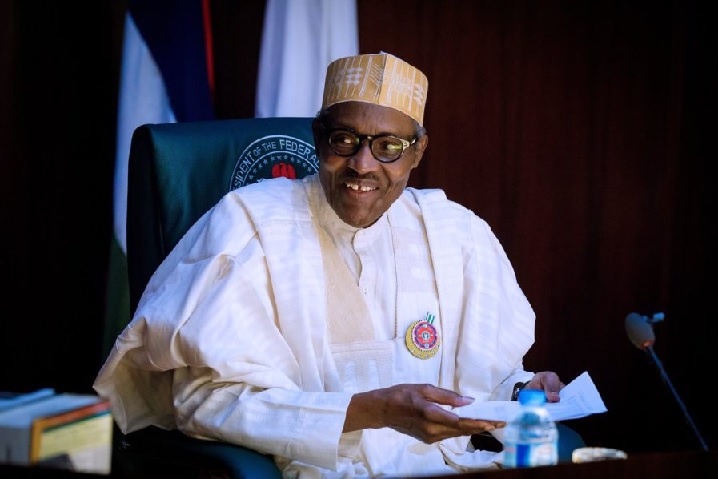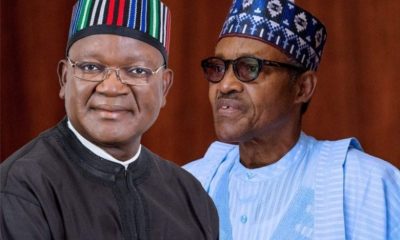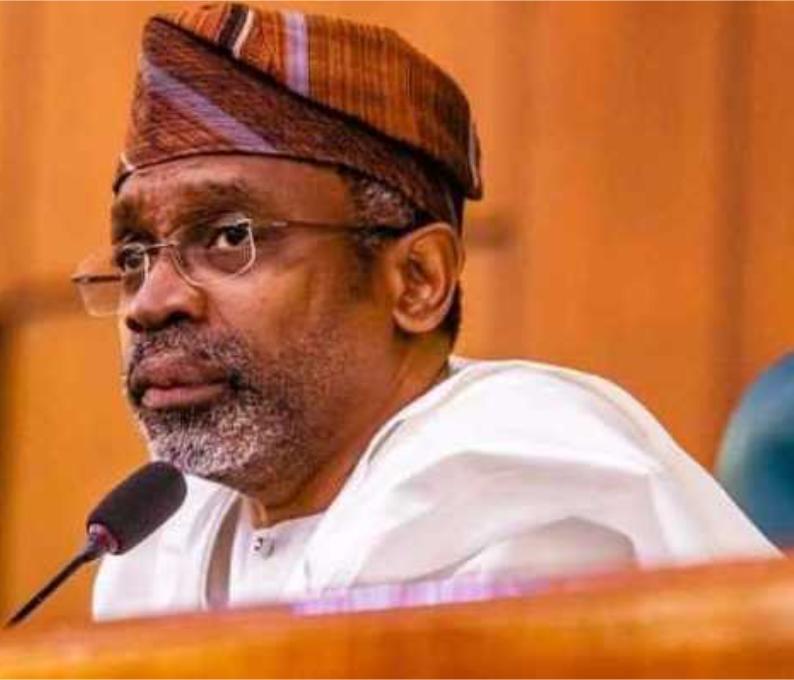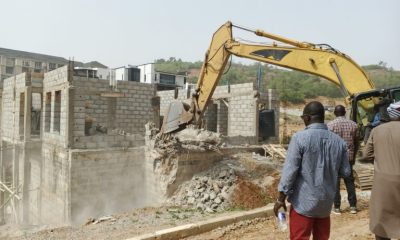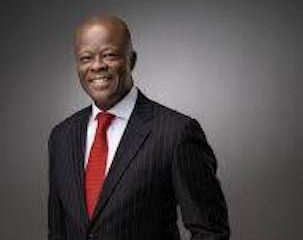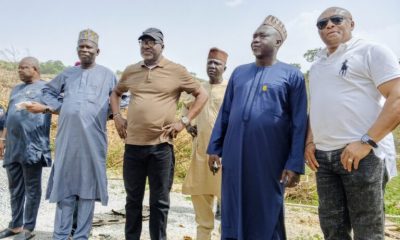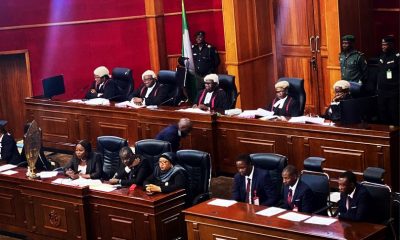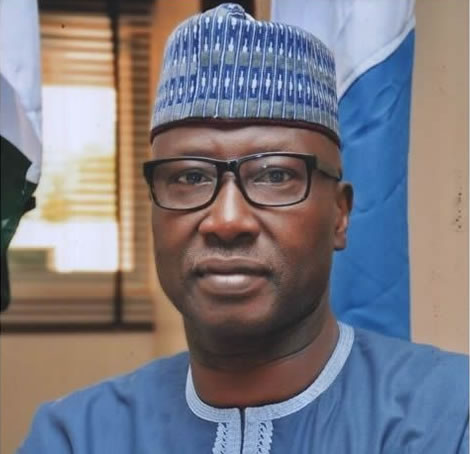COVER
Electoral Act: Reps Summon INEC Chairman, Mahmood Over Cost of Direct Primaries
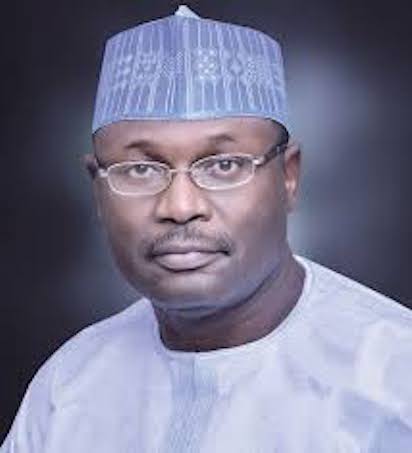
By Ubong Ukpong, Abuja
The House of Representatives has invited the Chairman of Independent National Electoral Commission (INEC), Yakub Mahmud to interface with its Committees on Electoral Matters and Appropriation over the cost of implementing the proposed Electoral Act amendment Bill awaiting President Muhammadu Buhari’s assent.
Reservations have been raised by some political interests over the direct primaries provisions, with claims that it would come with huge cost.
However, the House said the INEC boss must come for possible consideration of the cost in the 2022 Appropriation Act, still pending with the National Assembly, so that the youths, grassroots, and majority of party members will not be shut-out from political processes.
The resolution came yesterday, sequel to a motion of urgent public importance brought before the House by Hon Leke Abejide.
Abejide that is that the Electoral Bill, which has been passed by both Chambers of the National Assembly, was only waiting for Presidential assent to become Law.
Also, he said that the Bill was very critical to the sustainability of Nigeria’s democracy as the aspect of direct primaries would open up the Political space for the youths and largely the members of all Political Parties to participate in all electoral processes starting from primary elections to the general elections.
He held that in spite of the countless complaints of the cost implications of direct primaries, “the benefits to my mind outweighed the cost implications. However, it is pertinent to give opportunity to Chairman, Independent Electoral Matters Commission (INEC) to interface with both Committees on Electoral Matters and Appropriation in order for the Nation to know what will cost the country through INEC in order to put to rest the insinuations of different figures flying around that is so humongous to undertake direct primaries which may not be correct after all.”
The motion was overwhelmingly supported and adopted by the House presided by Speaker Femi Gbajabiamila.
…Begin Probe of N20bn Projects Duplication by MDAs
The House of Representatives, yesterday raised two different crack teams, to probe the N20billion projects duplication allegation in the 2021 budget, leveled against Federal Ministries, Departments and Agencies, (MDAs), by the Independent Corrupt Practices and other Related offences Commission, (ICPC).
While it resolved to set up an Ad-hoc committee to probe the forgoing allegation, the House directed a joint team of Committee on Public Service and Committee on Anti-Corruption, headed by the latter, to investigate the high level of corruption on the Nominal Rolls of these MDAs, within 10 weeks.
It gave the Ad-hoc committee investigating the N20 billion projects fraud, to get evidences from the ICPC and conclude its investigation within one week.
These resolutions followed a motion brought before it by Hon. Dachung Musa Bagos, asking it to investigate the high level of corruption on Nominal Rolls of Ministries, Departments and
Agencies (MDAs) in the country.
Bagos drew the attention of the House to the report of high level corruption being perpetrated in Ministries, Departments and Agencies (MDAs) in the Country.
He reminded that President Muhammadu Buhari, on 30 November, 2021 ordered the Independent Corrupt Practices and Other Related Offences Commission (ICPC) to take actions against Heads of Ministries, Departments and Agencies (MDAs) and other personnel involved in project racketeering, budget and payroll padding as well as ghost worker’s retention.
He also said that the Chairman of the Independent and Corrupt Practices and Other Related Offences Commission (ICPC) also stated that the review of the 2021 Budget led to the discovery of 257 duplicated projects with a combined worth of N20.138 billion.
The lawmaker expressed concern that the corrupt practices were carried out in all facet of the activities of the MDAs, with the highest list been the issue of payroll padding and ghost workers’ retention, these funds find their way into the pockets of the Chief Executives, Officers/ Heads of the MDAs at the expense of the nation.
Bagos further expressed concern that this corrupt practices have diverted the country’s revenue meant to be channeled into economic development and capital projects.
The motion enjoyed popular support and was adopted by the House presided by Speaker Femi Gbajabiamila.
COVER
Lagos Pays Out N1.17bn Loans to 4,600 MSMEs in 2024
The Lagos State government through the Lagos State Employment Trust Fund (LSETF) disbursed N1.17 billion loans to 4600 Micro, Small and Medium Enterprises (MSMEs) in 2024 in its drive to reduce unemployment in the state.Commissioner for Wealth Creation and Employment, Akinyemi Ajigbotafe, who disclosed this at a media briefing to commemorate the sixth anniversary of Governor Babajide Sanwo-Olu’s administration, said that the repayment rate by beneficiaries has been as high as 91% within the period.
Ajigbotafe said LSETF has also provided 82 small businesses with access to market opportunities in the state, while also training and securing employment for 6, 685 residents through its programmes, while another N558.56 million was disbursed as grants to support some Lagos-based businesses.He added that LSETF has also renewed the Memorandum of Understanding (MoU) with the United States African Development Foundation (USADF) to train 10,000 Lagosians, adding that at the end of the training, at least 60% of the participants will be placed into gainful employment.Providing more details into the loans, the Executive Secretary of LSETF, Feyisayo Alayande said that by providing finances for the MSMEs, the agency had helped create 48,830 direct and indirect jobs within the year, while also assisting to retain 34,542 existing jobs.According to her, several of the beneficiaries have gone beyond self-employment to employing others, thus reducing unemployment in the state. She added that the agency is also following up closely with the remaining beneficiaries to secure payments on the outstanding 9% of the loans.Alayande called on those facing business challenges to engage with LSETF ahead of their loan deadline to prevent enforcement actions.BoI Disburses N2.25bn to 16,696 MSMEs in GombeThe Bank of Industry (BoI) has disbursed N2.25 billion to support 16,696 Micro, Small, and Medium Enterprises (MSMEs) in Gombe State.Managing Director/Chief Executive Officer of BoI, Dr. Olasupo Olusi, who disclosed this a meeting with the Gombe business community, said the disbursement is part of the N200 billion Federal Government Loan Scheme for MSMEs and manufacturing businesses.According to him, nearly 900,000 beneficiaries in Nigeria’s six geopolitical zones have received over N107 billion from the scheme through the bank.“Out of this, over 16,696 beneficiaries, valued at N2.25 billion, are from Gombe State,” he said. Olusi described the setting up of the fund as a historic move by the administration of President Bola Tinubu in an effort to empower MSMEs and revitalize Nigeria’s manufacturing sector as part of a larger plan for national economic growth.He said that the plan is a significant investment in Nigeria’s future and a dedication to maximizing the potential of the commercial sector.“MSMEs bring life to the local economy. They create jobs, provide livelihoods, and drive innovation across sectors,” Olusi added.He noted that MSMEs make up 96% of Nigerian companies, contributes 84% of jobs, and about 50% of GDP.According to him, BoI is trying to make sure the program serves as a stimulant for employment, creativity, and wealth, particularly for young business ownersCOVER
Gunmen Kill Two Vigilante, Two Travelers, Abduct Others in Niger, Benue

From Dan Amasingha, Minna and Attah Ede, Makurdi
After weeks of respite from attacks by Bandits on Niger Communities, a renewed attack has claimed two vigilante members and injured one in Mariga local government area of Niger State.The latest attacks is coming weeks after most communities celebrated relief from incessant attacks from Bandits that has claimed hindered of lives in communities within Niger East Senatorial District and part of Niger North.
Eye witness told DAILY ASSET that no fewer than 300 suspected bandits on their motorcycles each carrying passengers with sophisticated weapons were sighted crossing Kontagora to Minna highway. The outlaws were seen between Kampanin Bobby and Wamba in Mariga local government area of Niger state.The latest presence of the bandits were sighted on Sunday afternoon around 1:00PM when several motorists and people, who were on transit gathered at Kampanin Bobby.”Some moving towards Kontagora town to save their lives.”We saw each of those Bandits on motorcycles were carrying one to two persons who were well armed suspected to be coming from Zamfara state crossing towards Mashegu local government area of the state”A driver who stopped over at Kampanin Bobby revealed that there were no presences of security operatives to confront the bandits who are moving freely towards their destinationThe commercial driver, who preferred not to be named, confirmed in an interview that the military officers at Beri camp have been mobilized in to the forest to confront the criminals.When contacted, the chairman of Mariga local government Abbas Kasuwa Garba confirmed the incident on telephone,He explained that the joint security task force have been deployed to ensure the protection and safety of the communities adding that two of the vigilantes from Wamba who went to confront them were killed while one was injured and is undergoing treatment.The Niger State Police Command public Relations officer, Wasiu Abiodun is yet to react to the development.Bago Orders Review of CurfewNiger State Governor, Umaru Bago has reviewed the curfew time in Minna metropolis.In a press release by the Chief Press Secretary to the Governor, Bologi Ibrahim said the review is with immediate effect.The adjustment which is effective from Monday will now commence from 8pm in the night to 6:00AM.The Governor said the adjustment was due to security update he received from the State security committee.He said his administration will always continue to engage the security committee on the outcome of the curfew for further adjustment where necessary.Bago encouraged the people to continue to be law-abiding citizens as his administration is determined to implement policies that will impact positively on them and ensure their wellbeing.Again, Suspected Herders Intercept Commercial Motor, Kill Two, Abduct Others in BenueGunmen suspected to be Fulani herdsmen, have again, intercepted a commercial motor, killed two passengers and whisked away four others in Benue State.DAILY ASSET gathered that the incident happened on Sunday at about 11:00PM along the Otukpo–Adoka federal road in Otukpo local government area of the state.An eyewitness who spoke on condition of anonymity told our correspondent on phone in Makurdi on Monday, that the armed herders upon sighting the vehicle, opened fire and shot at the driver, who lost control and veered into the surrounding bushes.He said the attackers immediately and forcibly evacuated the passengers and whisked them away to an unknown location, abandoning the vehicle at the scene.The deceased driver, who has been identified as a native of Adoka, was later recovered and transported to his hometown.The executive chairman of Otukpo local government council Maxwell Ogiri who confirmed the development, said that the vehicle was coming from Abuja to Otukpo and majority of the passengers actually alighted in Adoka.According to him, the six passengers who remained in the vehicle were intercepted along Adoka Otukpo road and in the process, two people were killed and four others taken away to unknown destination.He further said already, joint security personnel have been drafted to the scene and had launched a manhunt for the assailants. Effort to get the reaction of the Benue State command Police Public Relations Officer, Catherine Anene proved abortive as she could not respond to text or call as at the time of filing this report.COVER
Tinubu Bans Importation of Foreign Goods Produced Locally
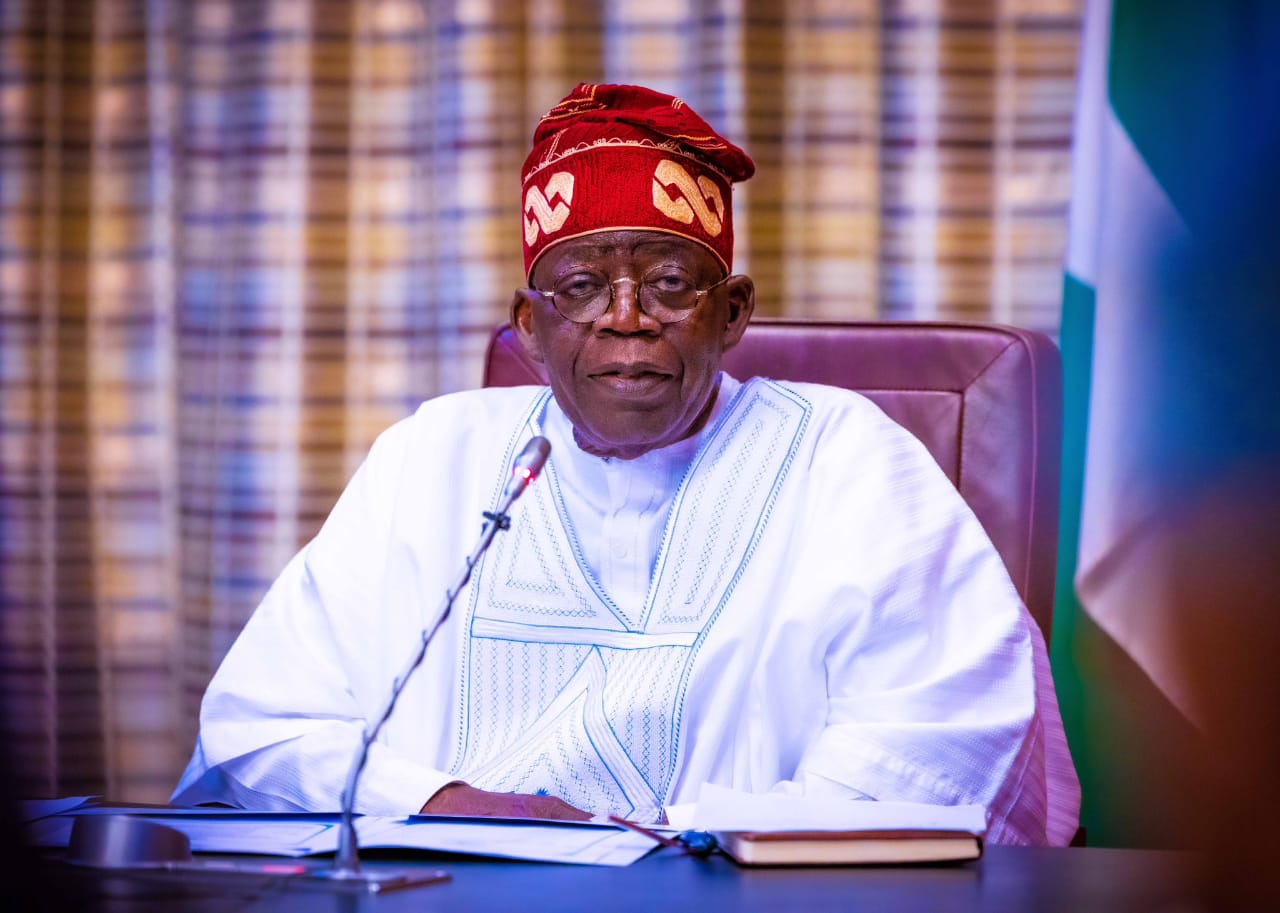
By David Torough, Abuja
In a bid to strengthen Nigeria’s domestic economy and promote local content, President Bola Tinubu has initiated a policy that bars the Ministries, Departments and Agencies (MDAs) from procuring foreign goods or services already available locally without a written waiver from the Bureau of Public Procurement (BPP).
This was as the Federal Executive Council (FEC) yesterday, gave its approval to the new policy framework that places the country at the center of all public procurement and business activity, with a strong emphasis on empowering local industries and reducing dependency on foreign imports. The new policy tagged the Renewed Hope Nigeria First Policy, seeks to foster a new business culture that is bold, confident and very Nigeria.Minister of Information and National Orientation, Mohammed Idris- Malagi, who briefed State House correspondents at the end of the fifth cabinet meeting in 2025, presided over by President Bola Tinubu at the Council Chamber, Presidential Villa, Abuja explained that the new policy is to ensure that the country promote the home grown products.




